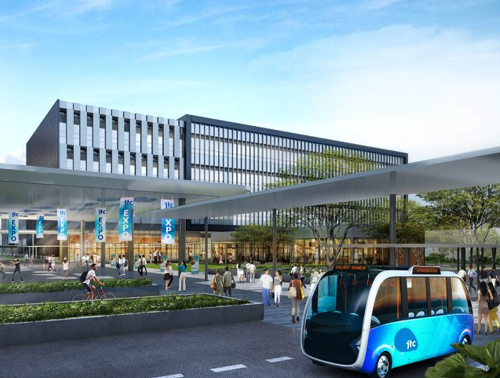Hyundai Singapore smart city mobility study
- September 13, 2023
- William Payne

Hyundai has complete a mobility study on future transport demand in Singapore’s Jurong Innovation District. The study forms part of the company’s agreement with Singapore’s sustainable urban development body, JTC, to develop smart transport models for Singapore’s next-generation industrial estates.
By working closely with JTC, Hyundai aimed to derive transportation types and operation plans specialised for the service operation areas based on its understanding of transportation data, population and employment type, and regional development plans of the area.
The project focused on the Bulim precinct in JID — the future home of Hyundai Motor Group Innovation Center in Singapore (HMGICS) — as well as the Jurong West residential complex. A sustainable means of transportation is needed for continuous use in the district, which is in an early stage of smart city development.
Through this project, Hyundai was responsible for predicting and analysing the future transportation demand in JID, based on future population, transportation and development plans, as well as determining optimised mobility solutions and operation plans.
JTC, which is a government institution in charge of planning, development and management of industrial complexes and related facilities in Singapore, provided data about JID’s traffic status, geographic information and working population.
Based on the data provided by JTC, Hyundai determined that the gap between public transportation supply and demand will gradually expand in the region, especially over the next 10 years. In addition, Hyundai also conducted interviews and surveys with over 1,300 residents and occupant employees within the JID district.
Hyundai and JTC gained an understanding of the preferences towards future mobility means, such as demand-response mobility, robotaxis, roboshuttles and personal mobility as well as people’s perception towards public transportation.
Subsequently, Hyundai derived an optimal mobility service operation plan to cope with the increase in population and mobility demand in JID for the next 10 years. Hyundai virtually evaluated each mobility service and concluded that roboshuttles were the most optimal solution, considering user convenience and traffic flow.
Through this project, Hyundai has experienced smart city service planning capabilities considering urban infrastructure and transportation demand. Based on this experience, Hyundai now has better insights on developing similar future mobility solutions in other neighboring countries to maximise customer satisfaction and operational efficiency through new mobility services.
In addition, Hyundai is producing a series of videos) illustrating the process.
“This is the first project that Hyundai Motor Group has undertaken with JTC, Singapore’s industrial infrastructure provider, to gain insight about the changes in the current and future mobility of Jurong Innovation District,” said Hyeyoung Kim, Vice President and Head of Smart City Planning Group of Hyundai Motor Group. “We expect it to be the cornerstone for similar smart city projects in Singapore and regional ASEAN markets, where various complex developments are still underway.”
“Hyundai’s study has helped us better understand future traffic workflows within the JID/Bulim area, and we look forward to similar studies to help JTC plan car-lite districts more efficiently,” said Anil Das, Director, Logistics and Land Transport Cluster, JTC.





